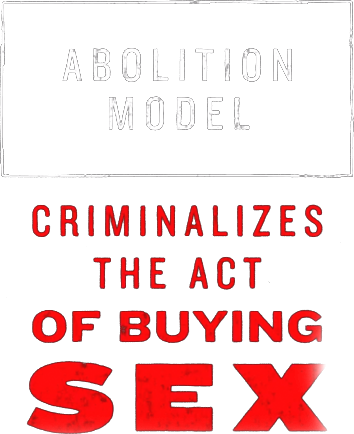This basic reality is the foundation to the ultimate solution to sex trafficking. In order to end it we have to end demand for commercial sex.
But how?
Time, testing, and research have demonstrated unequivocally that policies focused on eliminating demand are extremely effective in eliminating sex trafficking.[1] Countries that criminalize the purchase of sex as a felony level offense and de-criminalize the vulnerable women who sell it—and instead offer them help and social services—have seen astounding results. [2]
